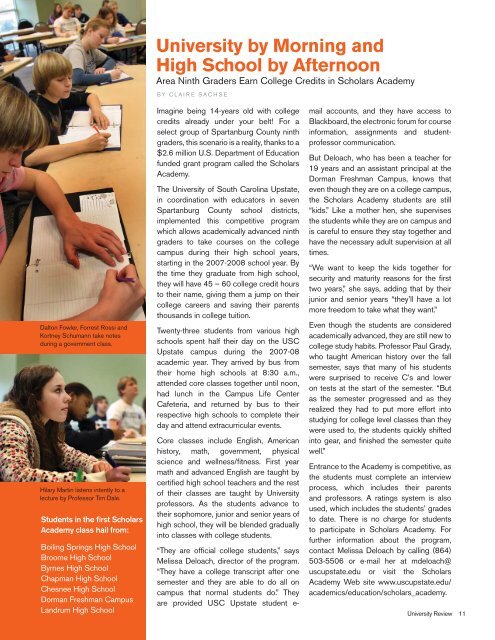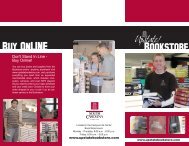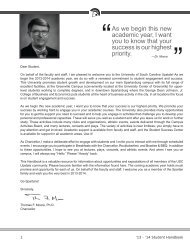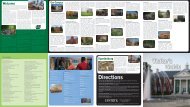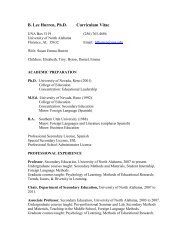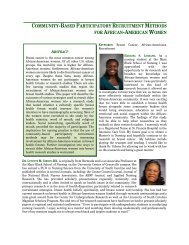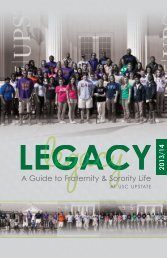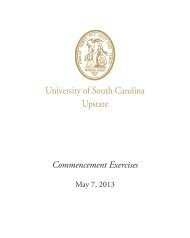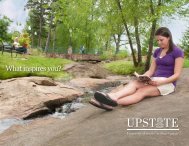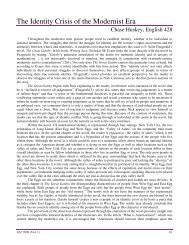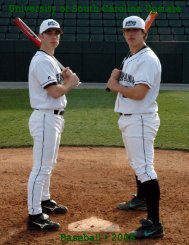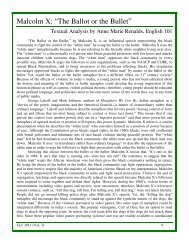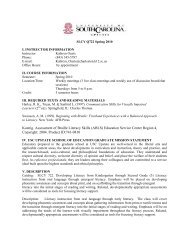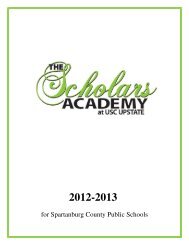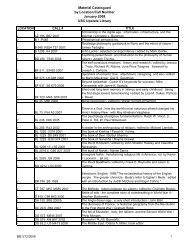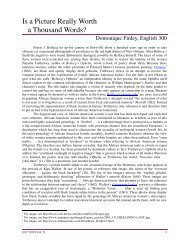Spring 2008 PDF - University of South Carolina Upstate
Spring 2008 PDF - University of South Carolina Upstate
Spring 2008 PDF - University of South Carolina Upstate
You also want an ePaper? Increase the reach of your titles
YUMPU automatically turns print PDFs into web optimized ePapers that Google loves.
<strong>University</strong> by Morning and<br />
High School by Afternoon<br />
Area Ninth Graders Earn College Credits in Scholars Academy<br />
BY CLAIRE SACHSE<br />
Dalton Fowler, Forrest Rossi and<br />
Kortney Schumann take notes<br />
during a government class.<br />
Hilary Martin listens intently to a<br />
lecture by Pr<strong>of</strong>essor Tim Dale.<br />
Students in the first Scholars<br />
Academy class hail from:<br />
Boiling <strong>Spring</strong>s High School<br />
Broome High School<br />
Byrnes High School<br />
Chapman High School<br />
Chesnee High School<br />
Dorman Freshman Campus<br />
Landrum High School<br />
Imagine being 14-years old with college<br />
credits already under your belt! For a<br />
select group <strong>of</strong> Spartanburg County ninth<br />
graders, this scenario is a reality, thanks to a<br />
$2.6 million U.S. Department <strong>of</strong> Education<br />
funded grant program called the Scholars<br />
Academy.<br />
The <strong>University</strong> <strong>of</strong> <strong>South</strong> <strong>Carolina</strong> <strong>Upstate</strong>,<br />
in coordination with educators in seven<br />
Spartanburg County school districts,<br />
implemented this competitive program<br />
which allows academically advanced ninth<br />
graders to take courses on the college<br />
campus during their high school years,<br />
starting in the 2007-<strong>2008</strong> school year. By<br />
the time they graduate from high school,<br />
they will have 45 – 60 college credit hours<br />
to their name, giving them a jump on their<br />
college careers and saving their parents<br />
thousands in college tuition.<br />
Twenty-three students from various high<br />
schools spent half their day on the USC<br />
<strong>Upstate</strong> campus during the 2007-08<br />
academic year. They arrived by bus from<br />
their home high schools at 8:30 a.m.,<br />
attended core classes together until noon,<br />
had lunch in the Campus Life Center<br />
Cafeteria, and returned by bus to their<br />
respective high schools to complete their<br />
day and attend extracurricular events.<br />
Core classes include English, American<br />
history, math, government, physical<br />
science and wellness/fitness. First year<br />
math and advanced English are taught by<br />
certified high school teachers and the rest<br />
<strong>of</strong> their classes are taught by <strong>University</strong><br />
pr<strong>of</strong>essors. As the students advance to<br />
their sophomore, junior and senior years <strong>of</strong><br />
high school, they will be blended gradually<br />
into classes with college students.<br />
“They are <strong>of</strong>ficial college students,” says<br />
Melissa Deloach, director <strong>of</strong> the program.<br />
“They have a college transcript after one<br />
semester and they are able to do all on<br />
campus that normal students do.” They<br />
are provided USC <strong>Upstate</strong> student e-<br />
mail accounts, and they have access to<br />
Blackboard, the electronic forum for course<br />
information, assignments and studentpr<strong>of</strong>essor<br />
communication.<br />
But Deloach, who has been a teacher for<br />
19 years and an assistant principal at the<br />
Dorman Freshman Campus, knows that<br />
even though they are on a college campus,<br />
the Scholars Academy students are still<br />
“kids.” Like a mother hen, she supervises<br />
the students while they are on campus and<br />
is careful to ensure they stay together and<br />
have the necessary adult supervision at all<br />
times.<br />
“We want to keep the kids together for<br />
security and maturity reasons for the first<br />
two years,” she says, adding that by their<br />
junior and senior years “they’ll have a lot<br />
more freedom to take what they want.”<br />
Even though the students are considered<br />
academically advanced, they are still new to<br />
college study habits. Pr<strong>of</strong>essor Paul Grady,<br />
who taught American history over the fall<br />
semester, says that many <strong>of</strong> his students<br />
were surprised to receive C’s and lower<br />
on tests at the start <strong>of</strong> the semester. “But<br />
as the semester progressed and as they<br />
realized they had to put more effort into<br />
studying for college level classes than they<br />
were used to, the students quickly shifted<br />
into gear, and finished the semester quite<br />
well.”<br />
Entrance to the Academy is competitive, as<br />
the students must complete an interview<br />
process, which includes their parents<br />
and pr<strong>of</strong>essors. A ratings system is also<br />
used, which includes the students’ grades<br />
to date. There is no charge for students<br />
to participate in Scholars Academy. For<br />
further information about the program,<br />
contact Melissa Deloach by calling (864)<br />
503-5506 or e-mail her at mdeloach@<br />
uscupstate.edu or visit the Scholars<br />
Academy Web site www.uscupstate.edu/<br />
academics/education/scholars_academy.<br />
<strong>University</strong> Review 11


